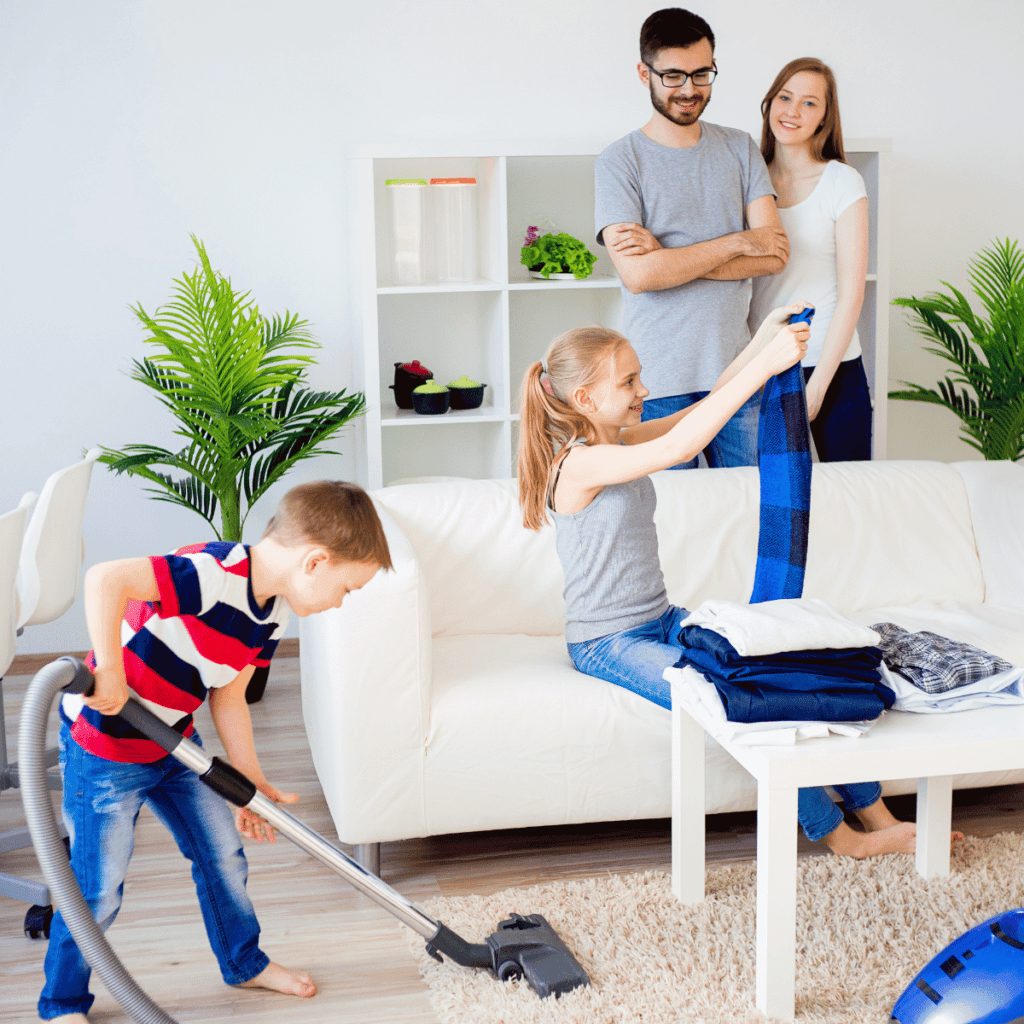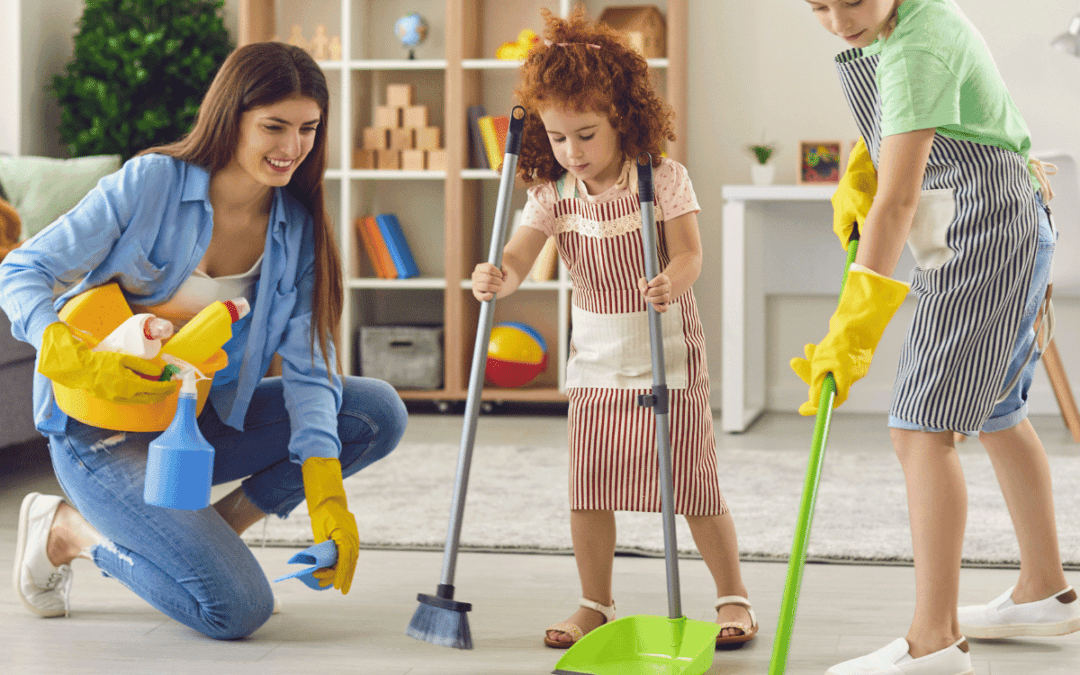We show you the next tips on how to get children in household cleanliness
When it comes to your children’s education, it’s not enough that they learn to read, write, and count. It is also vital to teach them skills and include children in household cleanliness.
Nowadays, getting your children to be responsible and help with household chores, especially cleaning, can be a real challenge. However, getting kids involved in cleaning can not only instill crucial life skills in them at a young age, but it can also help lighten the workload for you.
Even if you’re one of those who think kids should be allowed to be kids, it’s also important to appreciate that teaching them to clean the house has many benefits for them, including:
– They understand the value of responsibility.
– They develop self-confidence, self-assurance, and a strong work ethic.
– Reinforce respect.
– They discover clever ways to work.
Eight simple tips to get your kids involved in helping out around the house
We know it can be tricky to determine when it’s the time to let your kids start helping out. Sometimes, you may experience times when you feel like they’re just getting in the way instead of getting things done and appreciating your work.
1. Make cleaning fun
Making it fun is a great way to get your children in household cleanliness. Try a game where each child is in charge of a different area of the house, and the goal is to see who can clean each room the fastest.
You can also turn housework into a dance party by playing your children’s favorite songs while cleaning. When you make cleaning chores enjoyable, your kids are more likely to cooperate.
2. Set age-appropriate chores
The best thing to remember about teaching children to help with chores is that the earlier you do it, the better. It encourages the development of helping behavior and emphasizes that everyone should contribute to the home.
For best results when delegating cleaning chores to your children, consider the age and ability to assign size-appropriate tasks so your children will feel more successful and won’t get discouraged. For example:
– Ages 3 to 5: Younger children may do better with simple tasks such as picking up toys, dusting, throwing trash in the garbage can, putting dirty clothes in the hamper, or wiping surfaces.
– Ages 6 to 8: Children this age can help with making the bed, sorting laundry before and after washing, clearing the table, etc.
– Ages 9 to 12: Older children can take on more complex tasks such as helping prepare meals, vacuuming, mopping the floor, and washing dishes.
3. Use positive reinforcement
Another good way to motivate children to clean up is positive reinforcement. Praise them for a job well done, thank them for their help, or give your children a small reward. It is effective in developing habits and further encouraging them to help you.
By rewarding good behavior, your children will feel more valued and more likely to want to help you again the next time it’s time to clean up.

4. Establish a cleaning plan
With the help of a plan, it will be easier for the children in household cleanliness and they will be able to better understand what you expect from them and when. Also, try to avoid disputes over who is responsible for what.
Sit down with your children and together create a cleaning plan. It can help get them involved and be more likely to follow through on delegated cleaning tasks.
5. Lead by example
Often, young children copy what adults do because they learn by example. Therefore, do the same if you want them to clean up after themselves. Make cleaning up part of your daily routine so that children understand that it is a normal part of life because if they see you cleaning regularly, they are more likely to join in.
Get into the habit, especially for simple tasks like putting things back in their place. In this way, it is possible to instill the value of cleanliness at the same time, help them to create valuable cleaning habits.
6. Show and tell
Many children have an innate ability to be messy. Unfortunately, cleaning skills don’t come so naturally. Try to do things more slowly for challenging tasks so your children can follow along easily. Also, let them know what they are doing and why it’s great to do it.
Sometimes, too, children may insist that they can do chores like a house cleaners app professional. If this happens and you are the type to refuse their help, let them. Then, check their work and reasonably point out if they did something wrong so they can do better next time.
7. Use age-appropriate cleaning tools
For children in household cleanliness, can be more enjoyable if they use age-appropriate tools. Give little ones small brooms, cleaning cloths, and dustpans. You can provide older children with mops, vacuums, and cleaning sprays. Also, if your children have their cleaning tools, they will be happy to use them.
8. Let cleaning be a teaching opportunity
Cleaning can be a great time to teach children about responsibility, tidiness, and the value of cleanliness. Take the time to let them know why they need to clean some rooms in the house (like cleaning children’s restrooms) and the repercussions of not doing so. It will help your children understand the value of maintaining their living space.
Finally, teaching children how to help with household chores and make them enjoyable gives them skills that will be useful as adults. When you’re ready for a break, take a few minutes to book your house cleaning services online with CleanersList! Give your family a home that sparkles while everyone enjoys a well-deserved day off.
